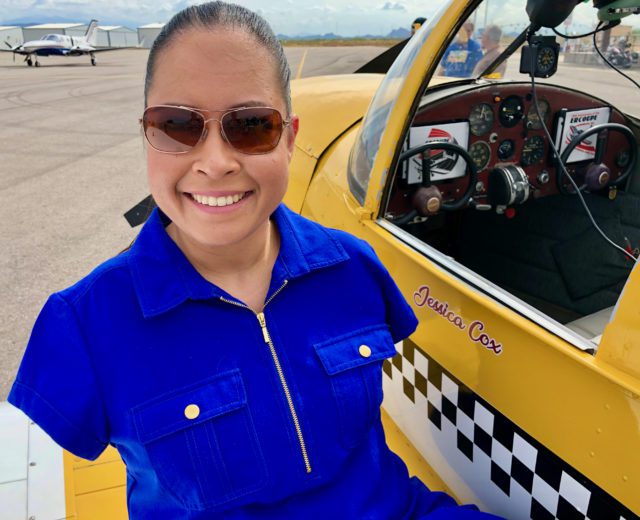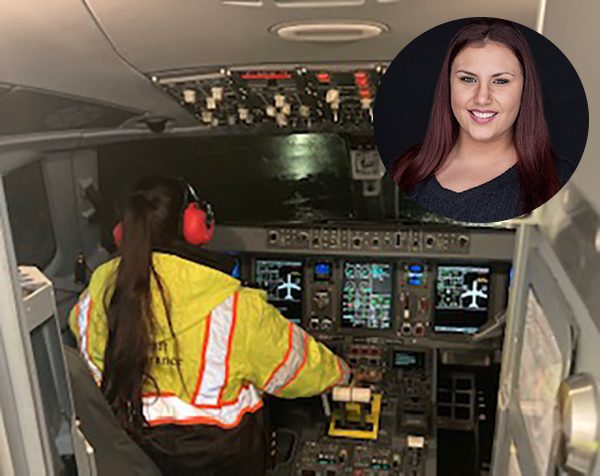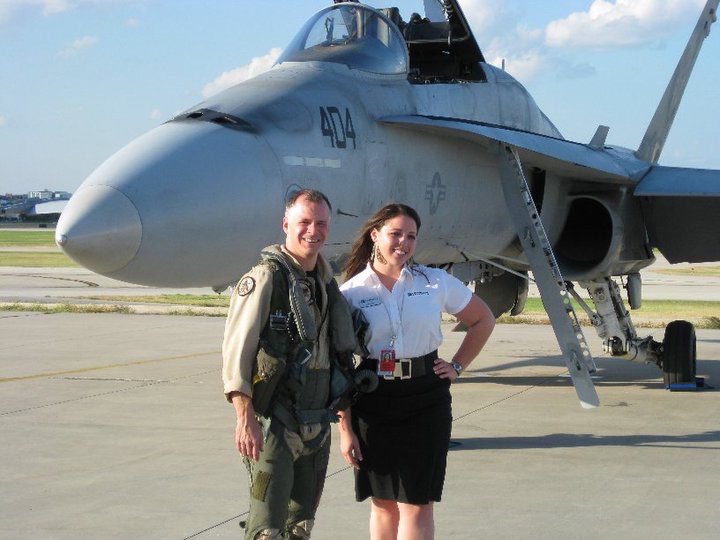

1: Why did you become an aviation technician?
Aviation is definitely in my blood. My grandfather was a pilot, my dad got his private pilots license at 16 and just recently became current again. My brother is an aerospace engineer and also got his private pilots. I have two uncles that are aircraft mechanics. I grew up listening to all these stories and never really thought about getting into it until I decided to go back to school 5 years ago. It was a leap of faith since it was my first mechanical job, but I’m so glad I did because I love my job.
2: Who do you work for and what type of aircraft do you work on?
I work for a regional airline whose fleet consists of De Havilland turboprops and Embraer E-Jets.
3: How have you seen aircraft maintenance change over your career?
I’m relatively new to this field, I’m only starting on my third year into it. Most of the changes I’ve seen have been due to Covid. Reduced passenger loads, cancelled routes, optional leave requests, early retirement packages and sometimes layoffs all contributed to a very unsure time in the industry.
4: How do you think the digitization of maintenance instructions and aircraft logs have/will impact your job?
It impacts my job every day. Being a regional airline, we rely on a streamlined and organized program to handle our scope of aircraft maintenance paperwork. I imagine that applying the digitization of aircraft logs and records for GA, commuter, and corporate aircraft can be nothing but considerably helpful.
5: As a woman in aviation, do you feel you are blazing the trail for other women?
I’ve never been the one to feel as important as the type to “blaze a trail” or anything like that. I just show up and do my job. Aircraft maintenance is definitely a man’s world, and I hope since I am so young I will be able to see a day when there are more women involved. The FAA is cited as saying only 2.6% of certificated Airframe & Powerplant license holders are female. That’s just license holders, many may be retired or not even employed using their license. I hope that any future female mechanics that get hired on with my company can find comfort that there are other females around- there’s comfort in numbers, and there are 4 of us now. That’s almost unheard of in this industry.

1: Why did you choose the aviation industry?
Aviation chose me! What was supposed to be a part-time job while in college, sparked a passion that I didn’t know existed.
2: Who do you work for and what types of roles have you held?
This is a tough one given my dual employment status. Let’s figure out how to word this one.
I started as a CSR at Million Air Houston, over the years I have worn a few hats; Corporate Flight Attendant, Part 135 Charter Coordinator, FBO Customer Service Manager and part of the Bluetail family.
3: How have you seen aircraft maintenance change over your career?
Maintenance was unchartered territory for me for the majority of my aviation career. About 7 years ago I became more involved and started to understand what exactly is required to properly maintain aircraft. Like everything else, aircraft maintenance is going digital when it comes to tracking, maintaining records as well as manuals.
4: How do you think the digitization of maintenance instructions and aircraft logs have/will impact your job?
In most flight departments, paper flight logs are a thing of the past. Record keeping for aircraft and pilot flight hours is now maintained on a phone or tablet through a scheduling software. Maintenance Records are not there yet but it is only a matter of time.
5: As a woman in aviation, do you feel you are blazing the trail for other women?
After about 10 years of working in the aviation industry, my dad made a comment that has stuck with me; he said ” I never thought you would be successful with this airplane stuff but you proved me wrong” I blazed my own trail in this industry to get to where I am today and would be thrilled to guide others.
6: Do you feel opportunities in the aviation industry are growing for women?
I have never felt that opportunities have ever been limited because I am a woman. The aviation industry in general is growing and opportunity is following.